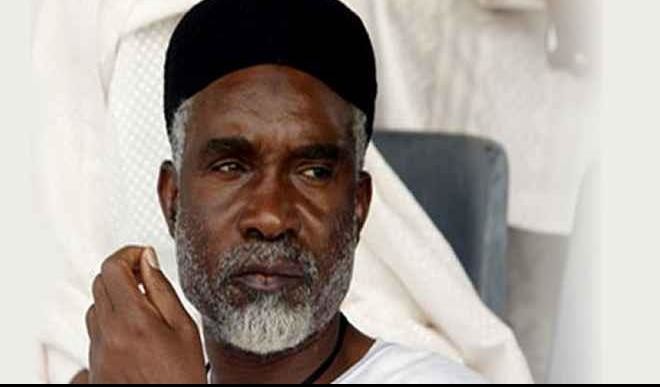Why Nyako is seeking a no case submission
Former governor of Adamawa State, Murtala Nyako has filed an application challenging the 37-count charge against him and eight others by the Economic and Financial Crimes Commission (EFCC). In a no case submission filed before a Federal High Court in Abuja through his lawyer, Kanu Agabi (SAN), Nyako is contending that the prosecution has not […]

Former governor of Adamawa State, Murtala Nyako
Former governor of Adamawa State, Murtala Nyako has filed an application challenging the 37-count charge against him and eight others by the Economic and Financial Crimes Commission (EFCC).
In a no case submission filed before a Federal High Court in Abuja through his lawyer, Kanu Agabi (SAN), Nyako is contending that the prosecution has not made out a case of corruption against him and others.
Nyako was in July 2015 arraigned on a 37 count charge of conversion of public funds valued at N29 billion. Those arraigned with him were his son Abdulaziz, and his two aides: Zulfikk Abba and Abubakar Aliyu.
Others were: Crust Energy Ltd, Blue Opal Ltd, Sebore Farms and Extension Ltd, Pagoda Fortunes Ltd, and Tower Assets Management Ltd.
Five of the grounds of the application are presented below:
Some defendants in the case not charged
The defendants argued that the prosecution made allegations against persons and companies who are not charged. They argued that the allegations against these firms “constitute elements of the offences charged. These are: Amdak Investment Ltd, mentioned in counts 1 to 6; Kirkelly Investment Ltd, mentioned in count 7; Binkola Engineering Ltd count 8; Pagoda Petroleum Ltd count 9; Park Point Ltd, count 11; and Masterlinks Nigeria Ltd, count 12.
The defendants also listed other companies mentioned but not charged under the charges to include: MHN Enterprises Ltd, count 14; Sentinel Exploration Production Ltd, counts 17, 18 and 19; Maxon Options Ltd count, 18; Apo Federal Housing in counts 29 and 37 as well as Ma’aji Iro, mentioned in counts 30 to 36.
Prosecution has not made out case:
Nyako also argued that the prosecution has not made out a case warranting an answer, explaining that “essential elements of the offences charged have either been omitted or not proved. Under Sections 302 and 303 of the Administration of Criminal Justice Act, 2015 (“ACJA”) the failure to prove an essential element of the offence charged is a ground for upholding a submission that the prosecution has not made out a case warranting an answer from the defendants.”
Quoting from the section 302, Nyako submitted that “the court may, on its own motion or on application by the defendant after hearing the evidence for the prosecution, where it considers that the evidence against the defendant or any of several defendants is not sufficient to justify the continuation of the trial, record a finding so not guilty in respect of the defendant without calling on him or them to enter his or their defence and the defendant shall accordingly be discharged and the court shall then call on the remaining defendants, if any, to enter his defence.”
Charge of stealing entails proof of ownership of the thing stolen:
The defendants argued that in proving elements of theft, ownership of the item allegedly stolen must be provided, adding that “the prosecution has not proved that the funds alleged to have been stolen belong to Adamawa State Government nor is there any evidence that the said government complained of any loss of funds.”
“Since it is plain that no one can steal or receive what does not exist, the learned trial judge had a clear duty to have discharged this Appellant,” he said.
Prosecution witnesses exonerated defendants:
The defendants argued that the evidence of prosecution witnesses such as PW9, PW15, PW16, PW20 exonerated them of the allegations. They contend for instance, that the first prosecution witness testified that none of the transactions of the companies charged were adjudged suspicious.
Presumption of innocence
The defendants argued that by virtue of Section 36(5) of the Nigerian Constitution 1999, every person charged with a criminal offence is presumed to be innocent until he is proved guilty.
“It is therefore the duty of the prosecution to rebut the presumption of innocence constitutionally guaranteed to the accused person, so where a no case submission had been made out at the end of the presentation of the prosecution’s case, it would amount to asking the Defendants to establish his innocence if he is called upon to answer, or enter a defence to the charge.”
The defendants concluded that the standard of proof is beyond reasonable doubt, adding that the court is not allowed to speculate.
